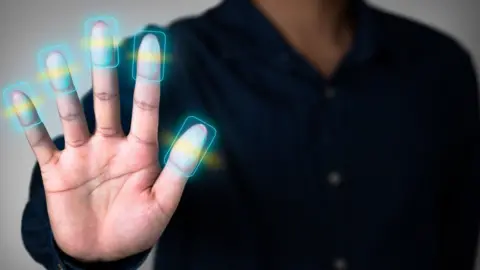3D printed fingertips 'like skin' says University of Bristol
 Thinkstock
ThinkstockA 3D-printed fingertip made to help improve prosthetics has a sense of touch like human skin, a study suggests.
The University of Bristol said that the development could "significantly improve" prosthetic hands.
Researchers found the new fingertip was able to produce artificial nerve signals that mimic those of humans.
Eventually researchers hope to be able to make artificial skin that is indistinguishable from real skin.
Professor Nathan Lepora, from the University of Bristol's department of engineering maths said: "Our work helps uncover how the complex internal structure of human skin creates our human sense of touch."
The researchers created the sense of touch in the artificial fingertip using a 3D-printed mesh of tiny pin-like bumps similar to those found on human skin.
'Like real skin'
The bumps are made on 3D printers that can mix together soft and hard materials to create complicated structures like those found in biology.
Prof Lepora said: "We found our 3D-printed fingertip can produce artificial nerve signals that look like recordings from real, tactile neurons.
He added: "In our work, we tested our 3D-printed artificial fingertip as it 'felt' those same ridged shapes and discovered a startlingly close match to the neural data.
"Our aim is to make artificial skin as good - or even better - than real skin."
While the research found a very close match between the artificial fingertip and human nerve signals, it was not as sensitive to fine detail.
Prof Lepora suspects this was because the 3D-printed skin is thicker than real skin and his team is now exploring how to 3D-print structures on the microscopic scale of human skin.
The findings are published in two papers published in the Journal of the Royal Society Interface.

Follow BBC West on Facebook, Twitter and Instagram. Send your story ideas to: [email protected]
